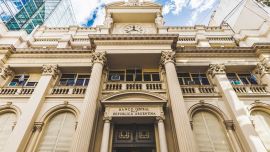While there is no shortage of enemies both between and within parties approaching the middle of an electoral year in a political system prone to polarisation, there can be no doubt that inflation is public enemy number one with the official April figure of 8.4 percent outrunning all forecasts. We are still at a point where almost no serious economist is predicting imminent hyperinflation and where most cures continue to be worse than the disease but there seems no stopping the momentum carrying us beyond that point.
Or at least nothing from the ruling triumvirate. While President Alberto Fernández has already thrown in the towel, Economy Minister Sergio Massa quickly produced a package of measures to stop the rot and slow the acceleration (even if a June inflation twice as high as the three percent he was promising for April would be a success for him) and Vice-President Cristina Fernández de Kirchner has offered a diagnosis from the position of distanced observer she has chosen to adopt (ratified last Tuesday by certifying her absence from any candidacy, thus simultaneously confirming a no-win situation) but neither convince.
That diagnosis rejects the standard monetarist explanation of inflation as an imbalance between pesos and dollars as a result of a money supply glut, in favour of demonising the International Monetary Fund (IMF) as ever. To that end Fernández de Kirchner supplied graphs showing that there is no correlation between inflation and either expansion of the money supply or its percentage of gross domestic product. But that analysis not only overlooks the notorious lag of a year or more between money being printed and its inflationary effects but also the fact that inflation is the product of not one but two Vs – not only the volume of the money supply but also the velocity of its circulation. A prime example is the last year of the Mauricio Macri administration, when no money was printed at all in keeping with IMF conditions, but 2019 inflation was still 53.8 percent – while monthly inflation was already 2.2 percent in midyear, the main cause was the massive loss of confidence anticipating this Frente de Todos government after the August PASO primaries. Loss of confidence also cuts off the other alternative to deficit financing, borrowing abroad. The veep has also pointed to developed countries printing hard currency by the trillions not billions during the 2008-2009 global financial meltdown and the coronavirus pandemic without major inflation but that is because they could transfer part of the cost to the future via debt while in Argentina everything is immediate.
If people have so little confidence in pesos that they feel obliged to spend rather than save them, the resulting velocity of circulation will produce inflation whatever the money supply but it also feeds the consumer-led growth lying at the heart of the Kirchnerite model – so much so that there is still a chance of economic activity growing minimally even in this drought year (with value-added and other sales taxation countering the loss of export duties). In this context Massa’s decision to jack up interest rates from 91 to 97 percent directly contradicts that model. Although the standard antidote to inflation worldwide, these interest rates may prove insufficient to create saving incentives amid three-digit annual inflation while swelling a quasi-fiscal deficit already at 13 trillion pesos with the Central Bank only able to cost Leliq and other bonds by printing money, hence more inflation.
The Massa initiative raising the most eyebrows was proposing food imports by the Central Market to hold down the seasonally fluctuating and drought-stricken prices of fruit and vegetables – startling indeed for a global agricultural heavyweight acutely lacking dollars and defying another Kirchnerite fundamental, a protected domestic market. Aside from such practical issues as the Central Market’s lack of any sales network abroad and keeping the produce fresh, the idea is typical of Massa’s approach of applying sound principles such as free trade or a rational exchange rate ad hoc to sectors. The multiple exchange rate is the root of many evils – if the government often blames inflation on speculative businessmen, it is not that they are either better or worse than elsewhere but being gifted the best deal in the world if they can buy abroad with the official dollar and then sell here for twice as much at the local rates (despite all the restrictions and complaints, imports have only dropped four percent from last year).
Other countries have hit bottom and then bounced back, but even that grim prospect looks remote.


















Comments